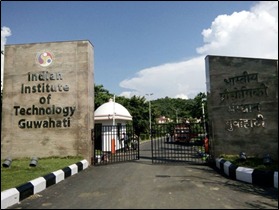IIT Guwahati Scientists report energy-efficient and eco-friendly ‘Porous Radiant Burner’ technology as an alternative to existing burners in the cooking domain
Guwahati: Researchers from the Indian Institute of Technology Guwahati, India, led by Prof. P. Muthukumar, have developed a technology that makes cookstoves energy-efficient, economical and eco-friendly. Burners used in these cookstoves are based on Porous Medium Combustion (PMC) technology, capable of exhibiting enhanced combustion characteristics.
Sustained use of clean cooking energy is influenced by multiple factors like the accessibility of the fuel, affordability of the recurring cost of the fuel, consumer awareness of the adverse health impacts, etc. Therefore, clean cooking energy solutions must be appraised from a multidimensional lens. One of the important aspects of cooking energy solutions is the development of efficient and eco-friendly cookstoves. Over the years, significant research has been devoted for achieving this goal. However, these improved cookstove’s impacts are limited due to the inherent disadvantage of combustion technology.
Towards this goal, Dr. P. Muthukumar, Professor, from IIT Guwahati, along with his research team has developed Porous Radiant Burners (PRBs) for various cookstoves with advanced combustion technology known as Porous Media Combustion. The Project is financed through IMPRINT, a technology development initiative of MHRD and DST, Government of India.
Speaking about the merits of their ‘cookstoves’, Prof. P. Muthukumar said, “These indigenously developed cookstoves are assisted with specially-designed PRBs that yield better performance as compared to their conventional counterparts at all three fronts of energy-saving, emissions and overall cost.” The findings of these developments have been published in highly reputed journals2-5 and also patented. The newly developed PRBs can be effectively used for fuels like LPG, Biogas and Kerosene for domestic as well as community/commercial cooking.
Speaking about the working of their ‘cookstoves’, Prof. P. Muthukumar said, “These PRBs operate on the principle of Porous Media Combustion (PMC), where the reaction is entrapped in a porous matrix due to which, the heat loss to the surroundings is restricted and a higher amount of heat is transferred to the load”. The prototypes needed for the invention have been developed in-house and are rigorously tested against available BIS standards for cookstoves. Fuel saving from these cookstoves is highly promising (See Table: Cookstoves and their performance).
The research team plans to commercialize the technology within one year and corroborate with industrial partners to extend the reach of these cookstoves in the Indian market. The research team believes that the work will have a global impact on the burner-based applications and their multi-billion-dollar market worldwide.
Clean Cooking energy access has been widely recognized as a critical input for sustainable development. Having access to reliable, clean and modern cooking energy improves the standard of living. The provision of clean cooking energy also addresses concerns related to food security, climate change and health care, among others, because of which it has become a goal in its own right. Because of its importance, many programs are undertaken by both governmental and non-governmental organizations all over the world.
The large consumer base in India makes cooking an energy-intensive sector and an efficient cookstove would significantly reduce the fuel needs on a large scale. A recently published article1 in the Lancet Planetary Health Journal reported that household pollution led to 0.65 M deaths which amount to 6.5% of the total deaths in India. Similarly, household air pollution is also responsible for 4.5% of the total disease burden (measured as Disability-adjusted life-years (DALYs)). These deaths and morbidity eventually add up to huge monetary losses that further add to the economic burden of the country. Household air pollution is caused mainly by the use of polluting cooking fuels and inefficient cookstoves. The Government of India has made efforts to enhance access to clean cooking energy by promoting LPG, biogas and improved cookstoves (ICS) through various policies and programs.

